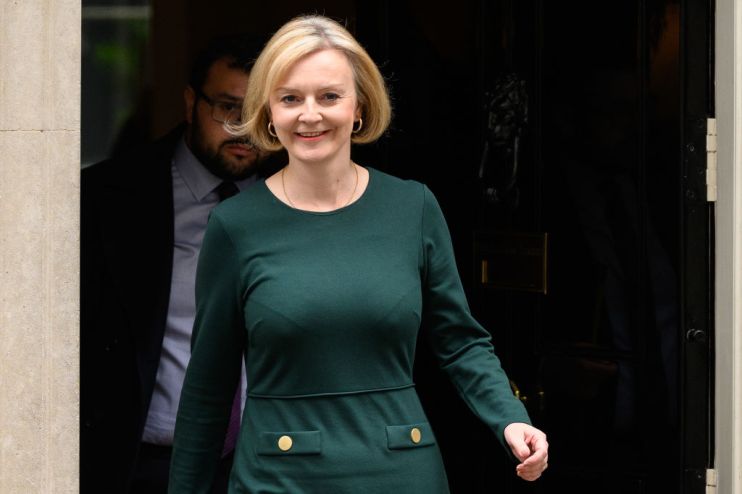Liz Truss U-turns on mini budget plans to reverse corporation tax hike

Liz Truss signed off another U-turn today, rolling back on plans to reverse corporation tax rising to 25 per cent from 19 per cent.
The move marks a second embarrassing climb down from the government’s tax cutting mini budget, which was characterised by Truss and former chancellor Kwasi Kwarteng as their blueprint for growth.
Financial markets have been rocked by Truss’s plans to slash taxes without cutting public spending.
Economists and analysts have been calling for the government to roll back some of their mini budget tax cuts to assure investors. Cuts included:
- Ditching the 1.25 percentage point national insurance rise
- Reversing the six percentage point corporation tax hike
- Bringing forward the 1p cut to the basic rate of income tax
- Scrapping the top 45p rate of income rate
- Raising the stamp duty threshold
Earlier today, the prime minister sacked Kwasi Kwarteng as chancellor, making him the second shortest serving incumbent in Number 11 in history at just 38 days. Jeremy Hunt, former health secretary, has taken his place.
Those moves created a £62bn hole in the public finances which would have to be filled by either huge public spending cuts or future tax rises.
The Institute for Fiscal Studies estimates the government will have to borrow £194bn this year to fund its fiscal plans. That figure will not be affected by the corporation tax hike reversal as it lands in the next financial year.
Truss’s corporation tax hike U-turn will claw back around £18bn a year for the public coffers. Last week, former chancellor Kwasi Kwarteng binned plans to remove the top 45p rate of income tax, raising £2bn for the government.
The prime minister said “current market issues” forced her into the U-turn, adding “we have to deliver the mission in a different way”.
Despite the revenue raising measures, the Resolution Foundation calculates Truss will have to find between £20bn and £40bn to put the public finances on a stable footing, suggesting more U-turns are coming.
Torsten Bell, chief executive of the Resolution Foundation, said: “The need to fund the remaining tax cuts and darker economic outlook – including higher debt interest costs – mean that despite today’s U-turns, Jeremy Hunt has just two weeks to decide how to fill a black hole of several tens of billions of pounds in the public finances.”
Markets did not respond kindly to the prime minister’s U-turn. The yield on 2-year UK gilt edged higher after falling in the morning.
The yield on the 30-year UK gilt also swung from a loss to a gain. Yields and prices move inversely.
The pound’s losses against the US dollar accelerated after Truss’s around 10 minute press conference in Number 10 in which she answered four questions from journalists.
Sterling fell 1.2 per cent against the greenback to buy $1.1163. London’s FTSE 100 climbed 1.4 per cent and the mid-cap FTSE 250 rose over two per cent.
Pound/US dollar exchange rate
